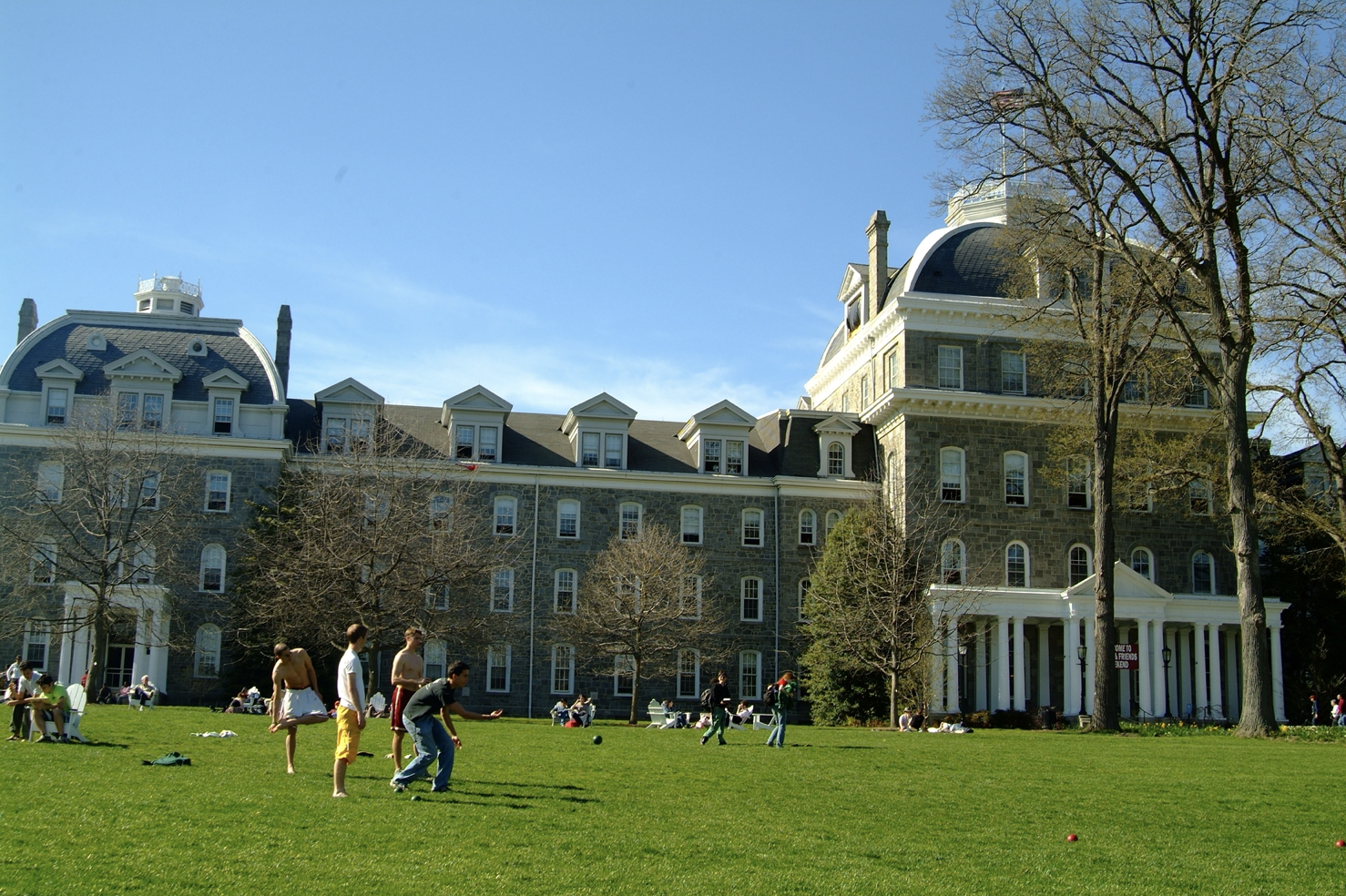I’m occasionally asked (by people who haven’t yet read the Preface) how I came to write INSIDE THE LIBERAL ARTS. Well, causality is complicated. There’s an origins story (what triggered the book) and a backstory (why it was triggered). Causality, and how it differs from causation, are a subject for a later post. Here, to further introduce the blog, I’ll resort to the desperate strategy of a more or less straightforward narrative.
The origins story is pretty simple. I was visiting Reed College in Oregon with my son. This was long enough ago that colleges still had printed course catalogues. And I noticed that Reed’s catalogue, in the early 2000’s, strikingly resembled that of my alma mater, Swarthmore, in the 1970s. Swarthmore had since expanded its curriculum considerably, while Reed hewed to a narrower vision.
Reed College
That got me thinking: two great liberal arts colleges with very different curricular approaches to liberal learning. But both still relied on classroom discussion, lectures, and heavy reading. I realized that the concept of “the liberal arts” is wide, wobbly, and worth exploring. So, a few years later, I began to explore it.
I began with a wisp of an idea: people say the liberal arts promote critical thinking. But they seldom explain how or why that happens. That led me to further exploration down the rabbit hole (and it isn’t a bad or unnecessary rabbit hole) of critical thinking. It’s a dark academic ghetto, but a place where some worthwhile scholarship happens.
Fairly early on in my research journey, I realized that there is a great convergence. Critical thinking is all about the liberal arts, and vice versa. That became a principle theme and organizing framework for INSIDE THE LIBERAL ARTS. I kept on reading: books and articles about the liberal arts, about critical thinking, about thinking in general (there’s a great wealth of books about thinking for the layperson), and about the field that underlies all of it: philosophy. Everything I read suggested to me that “the liberal arts” and “critical thinking” are interwoven, and crucial to citizenship and therefore to democracy.
As to the backstory, it’s pretty simple, if you don’t look too closely. I’m schooled in philosophy and blessed with a bit more curiosity than intellect. No false modesty here: the intellect is okay, with some age-related exceptions. But I don’t pretend to be a philosopher, and only on a good day do I consider myself an independent scholar. I just do what I can, and what I love, and personally I view that as a winning formula.
I realize that, in focusing on the intellectual side, I haven’t begun to exhaust the meaning or importance of liberal education. But I’m just not as interested in beer or volleyball. I’m not even very interested in the idea of “building character,” which has traditionally been considered part of a liberal education. Let’s just say it’s problematic.
Breadth of knowledge, and a degree of specialization, are also important – as is becoming more well-rounded, more civically engaged, and a better communicator. Maybe Swarthmore did more to develop my thinking, such as it is, than my character or life plan. But what makes a good liberal education isn’t just one thing (although I’d argue that becoming a more critical thinker trumps everything else). It’s a cluster of ideas that form a system, and share what Ludwig Wittgenstein called “family resemblance.” In brief, that means they share a set of properties in asymmetrical ways. I’ll get into all that in later posts.
Swarthmore College
Majoring in philosophy is an express lane to critical thinking, but it isn’t the only way to get there.
Had I managed to shed my East Coast roots and attend Reed, like my son, I might have discovered the virtues of the liberal arts in Oregon instead of Pennsylvania – and gotten a lot more skiing in. It might even have improved my character. But then, I got all the education I could absorb at the time. Besides, when I chose Swarthmore over Reed, what did I know? I wasn’t yet a critical thinker.


